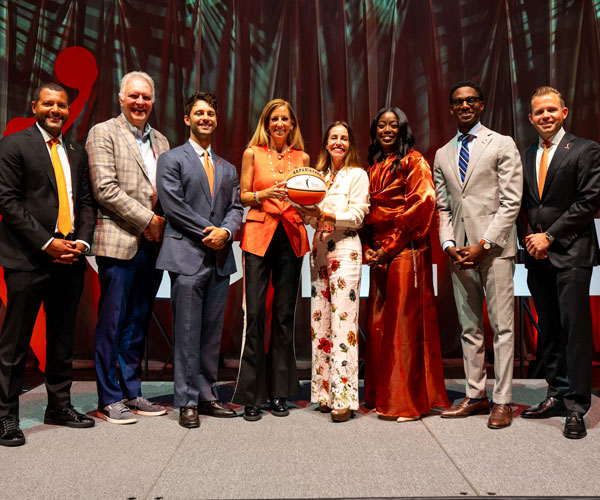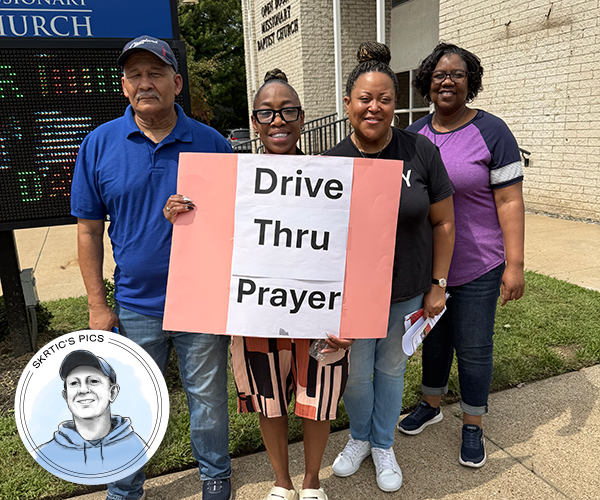Cleveland leads the nation for the second straight year when it comes to running efficient, effective nonprofits. The city's charitable organizations spend the lowest percentage of donations on fund-raising and the highest on programming and services, according to a study released in June by Charity Navigator, an independent evaluator in New Jersey. Also, the median assets of the 29 major Cleveland nonprofits studied were $48 million, the highest among the 25 cities included in the study.
Nonprofits across the nation strive for lean overhead expenses and healthy services. So why does Cleveland have an edge over runners-up such as Atlanta, St. Louis, Baltimore, Houston and Pittsburgh? Charity Navigator and several local nonprofits and donors say Cleveland has a rich tradition of generosity. Also, its organizations are well established and led by innovative directors who combine their passion for making a difference with sound fiscal judgment. They tend to run their charities as though they were for-profit, ensuring fiscal accountability and responsibility.
"Today's donors are savvy and ratings are easily accessible," says Sandra Miniutti, director of external relations at Charity Navigator. "When businesses, communities and leaders are passionate about a cause and want to see issues resolved, there has to be dedication and an ability to get the most impact for donor dollars. Cleveland is lucky to have many good business leaders on the boards of directors for many nonprofits."
An ethic of good stewardship flourished in Cleveland more than a century ago, establishing this region's support for culture and those in need, says Robert S. Reitman, principal of Riverbend Advisors, a Gates Mills consulting firm. Many of Cleveland's charities and nonprofits have been here ever since. United Way Services of Greater Cleveland was formed in 1913 and became a model for the rest of the country. The Jewish Community Federation of Cleveland was founded in 1903, the Cleveland Foundation in 1914.
"There's a sense of social responsibility here," Reitman says, "and we've been very successful at creating a network to help others."
Reitman, a former board chairman of the local United Way who's also chaired the Jewish Community Federation's annual fund-raising campaign, thinks the term "nonprofit" is a misnomer. For a large organization to be effective, it can't lose money every year. Ideally, it should make money.
Also, Reitman adds that the volunteers have to share a common vision and values. "When you're volunteering with the same people you sit next to in the synagogue or church and carpool their kids with yours," he says, "there's a credibility there outside the context of volunteering. These people live and work together. Their kids play together. A spirit of volunteering and camaraderie creates a glue that strengthens the entire community. My suspicion is that Cleveland's philanthropic roots have always had this community-driven purpose."
Stephen H. Hoffman, president of the Jewish Community Federation, says he believes the city is building upon a tradition of generosity and an entrepreneurial spirit that made Cleveland strong. "You see this culture of leadership and giving in nonprofits like Case Western Reserve and its predecessor schools, in the support for the orchestra and [Cleveland] Museum of Art, in the Cleveland Foundation and in our own Jewish Community Federation of Cleveland," he says. "People who made their fortunes here believed in bettering their communities."
Hoffman is optimistic about the future of Cleveland's philanthropic leadership, but candidly adds that to stay at the top, organizations will have to continue responding to the economy. "Let's face it," he observes, "Greater Cleveland's economy has taken a lot of body blows in the past few decades and we've fought back to ensure our success. We've had to be especially entrepreneurial and cohesive to overcome what may have in other communities thrown them on their backs. Clevelanders recognize a lot of people have a stake in the success of what our charities are doing."
Board-of-director rosters among Northeast Ohio's charities are studded with well-known CEOs who understand accountability in the business world and transfer it to their philanthropic endeavors. The result is a sophisticated pool of talent that delivers exceptional value in service.
"The boards of directors at Cleveland nonprofits read like a •Who's Who' in Cleveland," Miniutti says. "As a result, Cleveland doesn't have to rely on splashy events that cost a lot of money. Having these people already in place is a built-in marketing tool. The city doesn't have to pull young unknowns to get things moving."
Alexander "Sandy" Cutler, chairman and CEO of Eaton Corp., chaired the local United Way campaign last year and helped raise $46.5 million. The 4.7 percent increase in giving was the largest in 20 years. "The fact that we accomplished this during a sluggish economy shows that Cleveland really reaches deep in its pockets to take care of people who need help," Cutler says. "Cleveland is innovative in coming up with ways to encourage giving and create accountability for money given."
Mike Benz, the local United Way's president and CEO, says our philanthropic leaders effectively manage their volunteers, ensuring that money is spent responsibly.
"People get in trouble when staff-driven organizations are out there doing their own thing," he says. "And then, one day, the board wakes up and finds that money is missing. When you're using other people's money, hands-on involvement from the board on down through volunteers is necessary to keep tight checks and balances. Cleveland does that. Why? I believe Midwestern ethics promote values that support the betterment of the community."
Kevin Keene, chair of the Diabetes Association of Greater Cleveland, says it's common for meetings to be attended by doctors, nurses, educators, CEOs, patients and other volunteers. "It's not a handful of people making decisions," he says. "It's the entire community."



